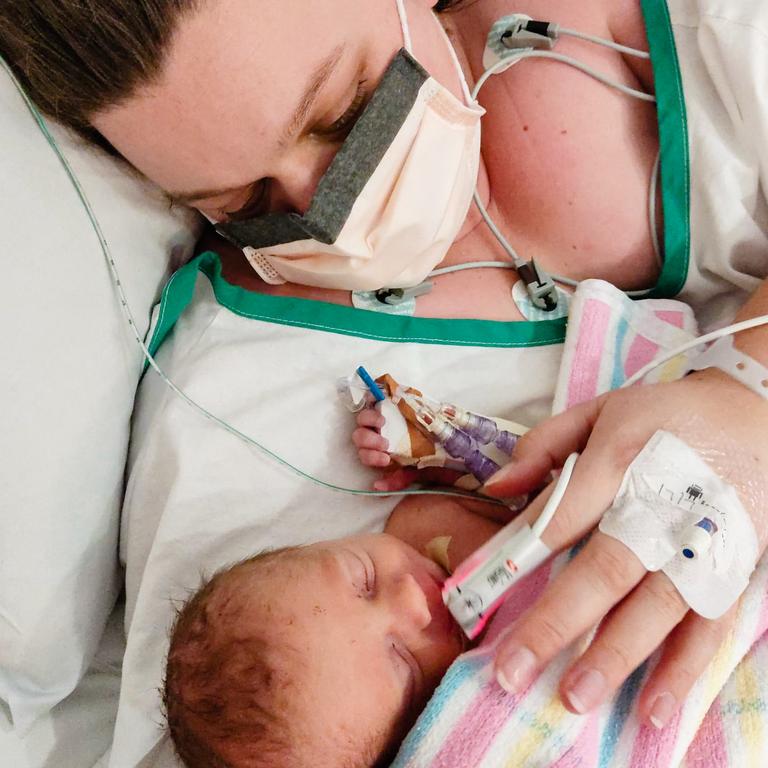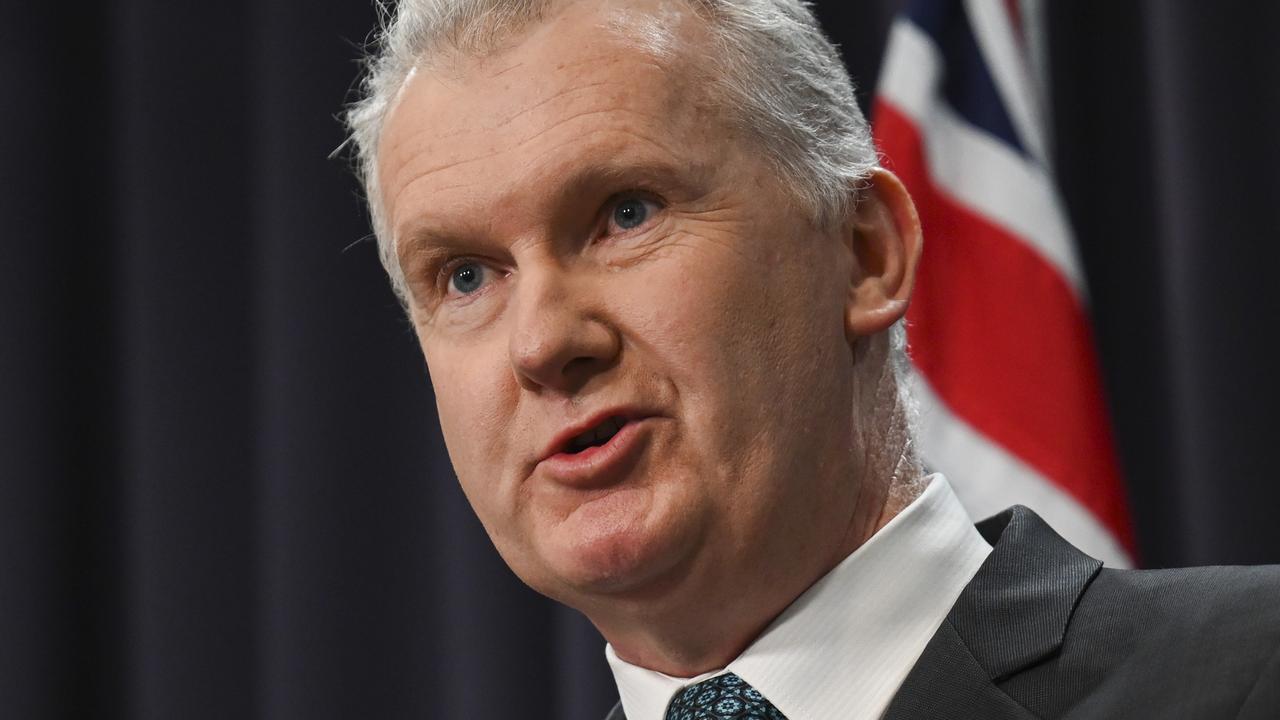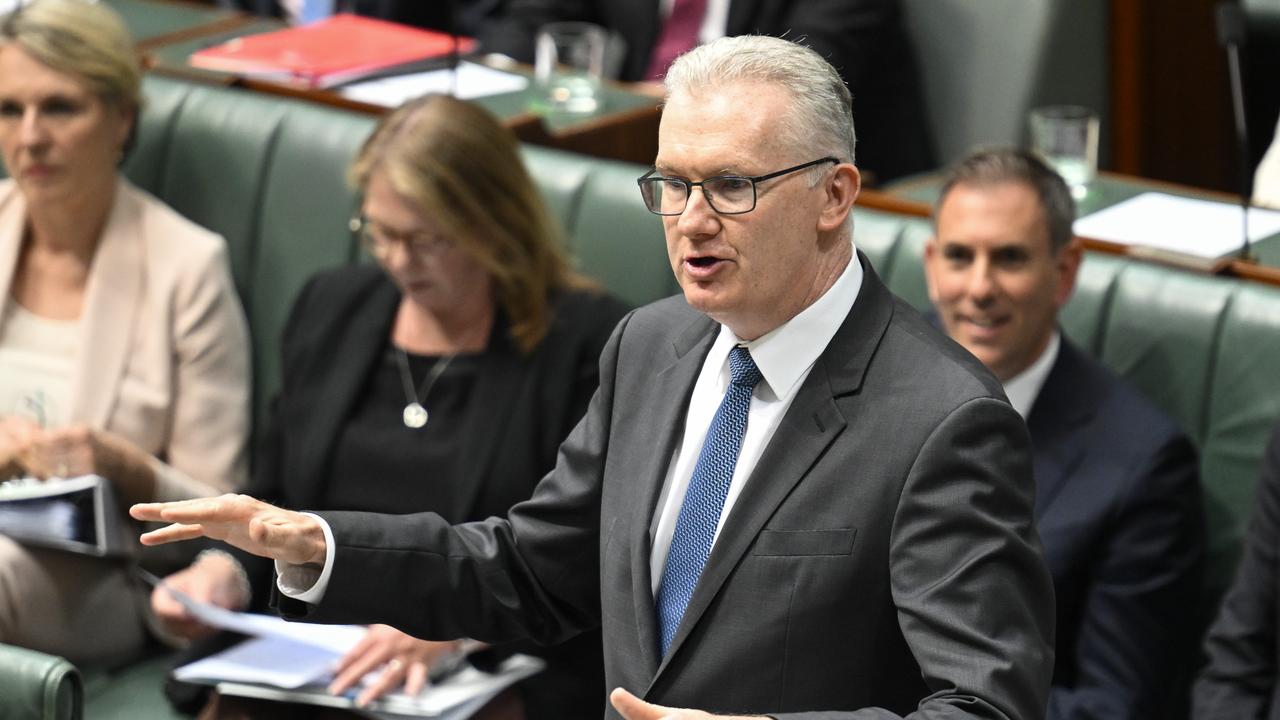Lives have been lost because of delays funding new medical tests
Australia is decades behind other countries in funding new medical tests that deliver almost instant diagnoses and it’s costing the health system a fortune.

National
Don't miss out on the headlines from National. Followed categories will be added to My News.
EXCLUSIVE
Tiny babies, pregnant women and cancer patients are missing out on new medical tests that could speed up their diagnosis and save the health system and economy more than $7 billion.
Some of the lifesaving tests have been available for decades and are funded overseas but not here because of a delay-riddled bureaucratic funding system, a new report reveals.
Pathology Technology Australia which represents manufacturers of medical tests says “we are up to ten years behind comparable economies in the funded deployment of genomic technologies and probably further behind in adequate support of point of care technologies”.
It is calling for the establishment of Diagnostic Advisory Group of healthcare professionals, patients and industry bodies to advise the government on which tests should be funded and which emerging technological breakthroughs should be quickly adopted.
The report lists a number of examples of unfunded or delayed access to medical tests that have cost Australian lives or resulted in billions of dollars of unnecessary health spending.
Australians waited seven years for new genetic tests to identify rare conditions in newborn babies leaving families waiting an average of six years for a diagnosis. New more rapid testing can deliver a result in 2-3 days.
Delays in funding the tests is estimated to have cost the health system over $529.6 million over the past 5 years.
A $44 blood test for Natriuretic peptide (NT-proBNP) which detects heart failure within 12 minutes is funded in general practice in the UK but not in Australia.
Failure to fund the 20-year-old test means patients have to have an echocardiogram and take time off work, pay gap fees and have their diagnosis delayed.
Its cost the health system and economy an estimated $5.9 billion over the last 20 years and $300 million every year going forward, the report said.

A simple $65 blood test can measure proteins in the blood and predict which pregnant women are at risk of pre-eclampsia which can be life threatening for both the mother and the unborn child.
The test was approved by our Therapeutic Goods Administration in 2011 and is funded in the UK but it is still not funded here costing the health system and the economy $235.3 million over the past 12 years. Six thousand women would have avoided hospitalisation each year if the test was funded.
More than 4,000 children suffered from meningitis and encephalitis over the last ten years but an $85 PCR test which ensures the right antibiotics are used reducing the risk of death is not funded.
It currently takes up to three days to determine the exact cause of infection while the multiplex PCR test gets results in an hour and could save governments over $35.2 million from reduced hospital days alone over the next 10 years.
Although Australia pioneered a new $70 point of care test that takes just 5-20 minutes only Queensland and Western Australia use it. If adopted nationwide it could save the health system $1.8 billion over the next decade.”
A spokesperson for the Department of Health said the Government is keen to work with the pathology industry “to ensure assessment and funding approaches are keeping pace with evolving technologies”.
A government advisory body is currently considering an application to fund the heart failure test (NT-proBNP) outside hospitals and Medicare could already accommodate testing for meningitis and encephalitis, the spokesperson said.

In 2022 Sarah Hens was diagnosed with severe pre-eclampsia and had her baby at 35 weeks by emergency caesarean section when her blood pressure reached 230/30 and she was on the verge of a seizure.
It has left the mum from the Blue Mountains with lifelong blood pressure problems.
“I was very lucky that’s the only complication. My kidneys recovered my liver recovered,” she said.
Despite having every symptom of the condition bar higher protein levels in her urine doctors did not diagnose her.
She “one hundred per cent” thinks Australia should fund the blood test for pre-eclampsia risk.
“Other places in the world are using it. So we should,” she said.
More Coverage
Originally published as Lives have been lost because of delays funding new medical tests









